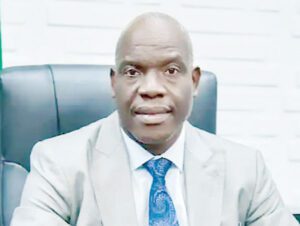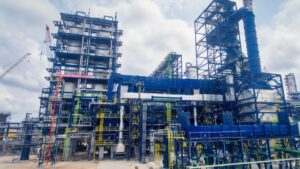
Fuel subsidy removal: Ensure inclusive, impactful, sustainable palliative measures — CPPE urges Tinubu
By Akinyemi Precious
The Centre for the Promotion of Private Enterprise (CPPE) has made it known to President Bola Ahmed Tinubu that there is need for palliative measures that are inclusive, impactful and sustainable in order to mitigate the adverse effects of the subsidy removal on the poor.
This was made known in the release to the President yesterday signed by CEO/Director, Centre For the Promotion Of Private Enterprise, Dr Musa Yusuf.
CPPE urged President Bola Tinubu to reciprocate the thoughtful stance of labour by speedily coming up with measures to mitigate the pains of the fuel subsidy removal as the sufferings are real and affecting the citizens across all segments of our society – public service, private sector, informal sector, artisans, students, SMEs, the unemployed, the aged, pensioners etc.
Muda Yusuf said that there is therefore a need for urgent responsive actions from all tiers of government and the measures should be holistic and inclusive and should be driven by a combination of direct interventions, fiscal policy measures and monetary policy actions as well as the need for urgent reciprocal response by the political leadership.
He reiterated that citizens have demonstrated an incredible understanding, tolerance, patience and resilience and The government cannot afford to overstretch this gesture as Reciprocity by the political leadership at all levels is urgent, exigent and crucial.Such responses would send the right signals to citizens and demonstrate government’s sensitivity to the devasting impact of the subsidy removal on the poor.
“In many instances, transportation costs have gone up by between 20 – 50 per cent. For most citizens, transportation is critical to their survival.
“The hike in transport fares and the corresponding inflationary effect is already posing a threat to the livelihood of many, both within and outside the public sector. Wage earners, small business owners, informal sector operatives, artisans and the unemployed are all very vulnerable in the current circumstances.
“Immediate panaceas need to be activated, not just with respect to transportation costs, but the surging cost of living generally,” they continued.
Muda advised government should implement direct intervention measures; NNPC should sell petroleum products at a price which is 10 per cent less than that of other private sector marketers.
This is to demonstrate the desired social sensitivity by the government in this transitional phase of the subsidy removal.
Also, Acceleration of the Presidential Power Initiative to upscale power supply in the country. State governments and private investors should be supported to leverage the decentralization power supply and off grid power solutions. Government must also put an end to the pricing of gas in dollars for domestic use, especially for manufacturers.
He added that necessary urgent steps must be taken by government to put an end to this dollarization framework to ensure a moderation in energy cost for the manufacturing sector and Government should take urgent steps to reduce the cost of LPG to households.
“Fiscal Policy Measures which included Import duty, VAT and other port charges on Semi Knocked Down parts for the assembly of mass transit buses should be waived as this would not only make mass transit buses cheaper; it would enhance industrial capacity utilization of the vehicle assembly plants in the country.
Import duty on passenger buses of 15 passenger capacity and above should be reduced by 50% for the next one year. Import duty on fairly used cars of engine capacity of 2000cc and below should be reduced by 30%.
Drastic reduction in import duty on intermediate products for food processing industry in the country and the government should engage major food processing companies to determine specific policy options for the realization of this objective.
Government should Introduce incentives to stimulate private investment in pipelines as this would sufficiently reduce distribution costs of petroleum products.
“Abolition of all forms of taxes and import duty on renewable energy equipment to boost the adoption of renewable energy by households and SMEs. Such waivers would make renewable energy adoption affordable and this would make citizens less reliant on the electricity grid.
Generous tax and other fiscal incentives should be provided for private investors in healthcare and education. This would help to conserve foreign exchange through a reversal of the growing medical tourism in the country and also enable the private sector complement the efforts of government in providing quality education , especially at the primary and secondary levels.
Government should immediately entrench competition in the importation and refining of petroleum products. This would put an end to the current monopoly structure of supply of petroleum products in the country.
He also said that NNPC is currently a monopoly supplier of petroleum products which is partly responsible for exploitative pricing of petroleum products diesel, aviation fuel and petrol.
The best strategy to protect consumers in any economy is to create a good and sustainable competition framework.”



